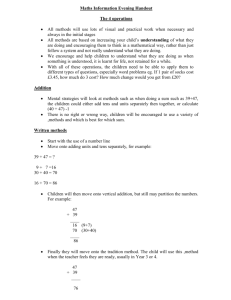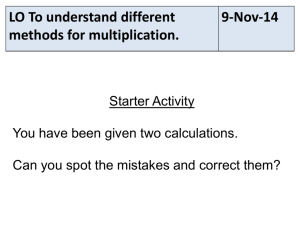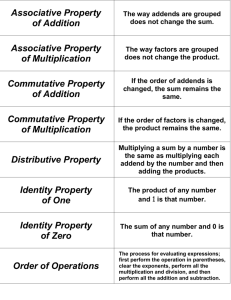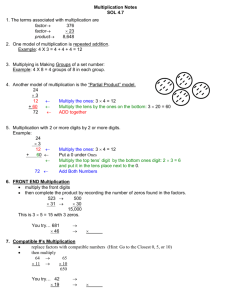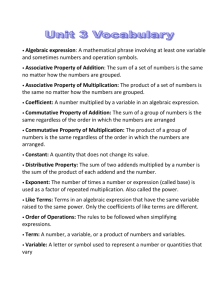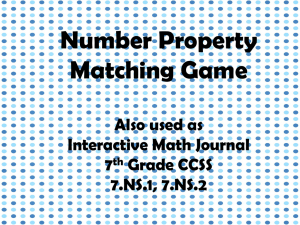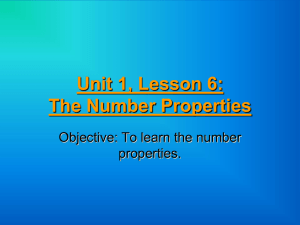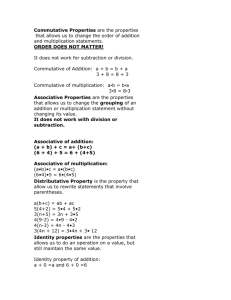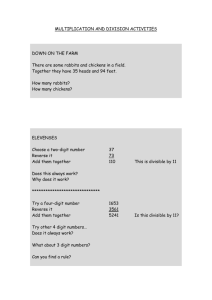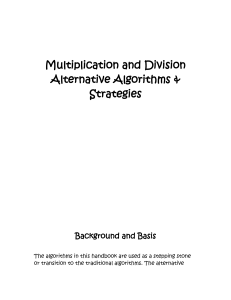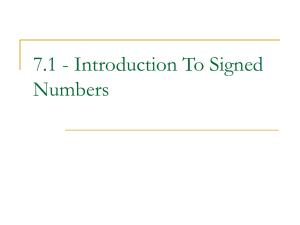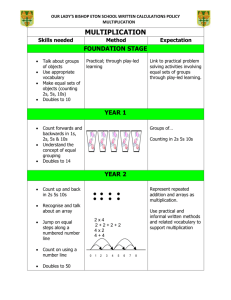sum multiplication
advertisement
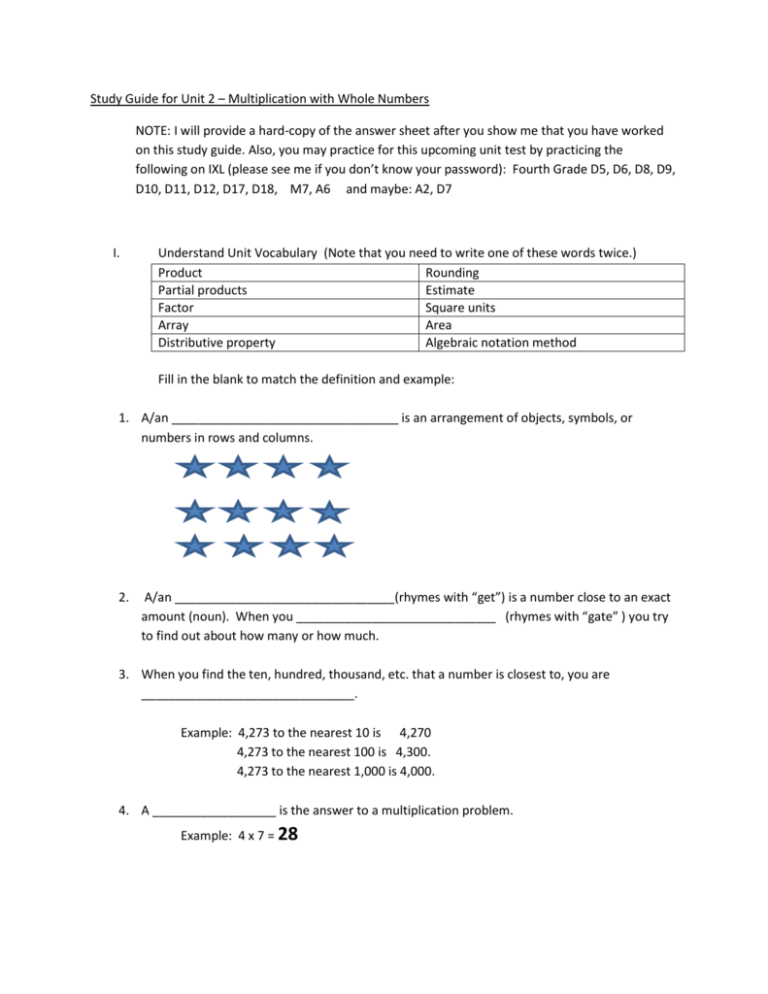
Study Guide for Unit 2 – Multiplication with Whole Numbers NOTE: I will provide a hard-copy of the answer sheet after you show me that you have worked on this study guide. Also, you may practice for this upcoming unit test by practicing the following on IXL (please see me if you don’t know your password): Fourth Grade D5, D6, D8, D9, D10, D11, D12, D17, D18, M7, A6 and maybe: A2, D7 I. Understand Unit Vocabulary (Note that you need to write one of these words twice.) Product Rounding Partial products Estimate Factor Square units Array Area Distributive property Algebraic notation method Fill in the blank to match the definition and example: 1. A/an _________________________________ is an arrangement of objects, symbols, or numbers in rows and columns. 2. A/an ________________________________(rhymes with “get”) is a number close to an exact amount (noun). When you _____________________________ (rhymes with “gate” ) you try to find out about how many or how much. 3. When you find the ten, hundred, thousand, etc. that a number is closest to, you are _______________________________. Example: 4,273 to the nearest 10 is 4,270 4,273 to the nearest 100 is 4,300. 4,273 to the nearest 1,000 is 4,000. 4. A __________________ is the answer to a multiplication problem. Example: 4 x 7 = 28 5. The product of the ones, tens, or hundreds, etc. of a multiplication problem. It is just PART of the solution to the multiplication problem. 24 X 12 48 So, 48 and 240 are “__________________________.” + 240 288 6. And 7. _____________________________ is the number of ______________________that cover a figure. 10 units 3 units 8. A ________________________________ is one of two or more numbers that are multiplied together to find a product. 4 X 7 = 28 9. The _________________________________________ shows that you can multiply a sum by a number, OR multiply each addend by a number and add the products and the result is THE SAME! Multiplying a sum by a number Multiplying each addend by a number and adding the products: 3 X (2 + 4) = 3X = 6 + 12 = 18 YES! There are two ways to get the 18 6 (3 X 2) + (3 X 4) same answer! 10. The ___________________________________________________________ is a strategy based on the Distributive Property. In a multiplication equation, you take one of the factors and decompose it (write it in expanded notation). This makes simpler multiplication expressions. Example: a. The equation is: b. Decompose (expand) the 28: c. Use the distributive property to make simpler multiplication problems: d. Solve what is in parentheses: e. Solve by finding the sum: II. 9 X 28 = ? 9 X (20 + 8) = ? (9 X 20) + (9 X 8) = ? 180 180 + 72 = ? + 72 = 252 Know the steps for solving multiplication problems like 20 X 30 or 50 X 70 or 80 X 40 by first factoring the tens. Study this example, then try it on your own. Here is the problem: 20 X 30 = ? Factor the tens: (2 X 10) X ( 3 X 10) = ? The commutative property and the associative property allows you to rearrange like this: Simplify (solve what’s in parentheses): Multiply and find the product: (2 X 3) X (10 X 10) = ? 6 6 X 100 X 100 Here is the problem: Factor the tens: The commutative property and the associative property allows you to rearrange like this: Simplify (solve what’s in parentheses): Multiply and find the product: 50 X 70 = ? Here is the problem: Factor the tens: The commutative property and the associative property allows you to rearrange like this: Simplify (solve what’s in parentheses): Multiply and find the product: 80 X 40 = ? =? = 600 III. Be able to use mental math to solve problems such as these (be careful, there may not be a pattern happening!): 3 x 6 = _______________ 3 X 60 = ____________________ 30 X 60 = _______________________ 3 X 600 = _________________________ 3 X 6,000 = ________________________ IV. Be able to solve, using any method: One digit by two digit problems like: 4 X 79 = 5 X 61 = One digit by three digit problems like: 4 X 302 = 8 X 153 = One digit by four digit problems like: 5 X 4,312 = 4 X 8,261 = Two digit by two digit problems like: 18 X 40 = V. Estimate products and solve for exact answer by: a. Rounding factors for estimate b. Multiplying for exact answer VI. Solve word problems such as: 13 X 43 = EXAMPLE 32 X 7 30 X 7 = 210 32 X 7 = 224 EXAMPLE 48 X 32 50 X 30 = 1,500 48 X 32 = 1,536 a. Eight fourth grade classes were collecting Box Tops for Education. Each class collected the same amount – 328 Box Tops per class! How many Box Tops did the fourth grade collect altogether? b. Mary’s bedroom is exactly 9 feet long and 14 feet wide. Her brother’s room is HUGE! It is 25 feet long and 32 feet wide! If Mary and her brother want to buy square foot tiles to cover BOTH their floors, how many tiles will they need altogether?
